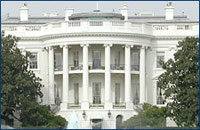 Let me note from the outset that those of us who spend time teaching international law tend to be in favor of it. So this advice for the next President comes from the perspective that there is a body of international law (much of which we have created, and the vast majority of which we follow). I think there are three opportunities for the next President to think particularly about international law and the broader role that the United States can play in the world. Although the U.S. has lost its role as the leader of the world and of international law in several specific ways, we can regain these positions.
Let me note from the outset that those of us who spend time teaching international law tend to be in favor of it. So this advice for the next President comes from the perspective that there is a body of international law (much of which we have created, and the vast majority of which we follow). I think there are three opportunities for the next President to think particularly about international law and the broader role that the United States can play in the world. Although the U.S. has lost its role as the leader of the world and of international law in several specific ways, we can regain these positions.
First, both candidates already have stated their opposition to torture and to the maintenance of Guantanamo Bay. The next President will automatically improve our standing by officially closing Gitmo and distancing himself from the Bush policies on torture. Even better (and perhaps possible under either candidate) would be joining the International Criminal Court (ICC). Admittedly, concerns regarding the ICC are not inconsequential, but a U.S. that remains a player and works for change (rather than sticking its head in the sand while the rest of the world moves forward) does not hand leadership over to other countries.
Second, we need to remember the use of diplomacy and its value in relationships around the world. “My way or the highway” works in old Westerns and for Clint Eastwood. The fact of the matter is that our economy and our military cannot afford that approach to conflict. The current bickering among the campaigns on “preconditions” to negotiation is missing the point. Of course there are always preconditions to high-level meetings and meetings before any presidential meeting. That should not obscure the point that we need to talk to countries around the world. Even General David Petraeus has pointed out that we need to talk to our enemies. These are, after all, the only people with whom we actually need to make peace.
We can also act as a convener for diplomacy and as a supplier of skilled neutrals. The U.S. has led in helping to end conflict from historic examples of Alexander Haig and Jimmy Carter to more recent examples of George Mitchell in Northern Ireland and Richard Holbrooke in Bosnia. This does not mean that the U.S. should be involved everywhere or can actually solve all disputes. But choosing not to help is sure to pass the leadership torch to other countries.
Third, and finally, we need to remember that international law benefits the U.S. International law is most likely to constrain bad actors in international relations and we, the U.S., are not usually the violators. We drafted many of the most famous international treaties and laws that make up international law. These laws reflect our values and our history more than almost any other domestic legal system. When countries accept the rule of law, as we try to promote in our foreign policy, they accept international law and the best that the U.S. has to offer.
On a final note, regarding international law, I propose that the next President go back to the model of international law being formulated in the State Department and the Department of Defense — particularly the military, instead of civilians. These two departments of the executive branch are generally far more cognizant of international law, and the impact of not following it, than are politically-appointed Department of Justice lawyers.
